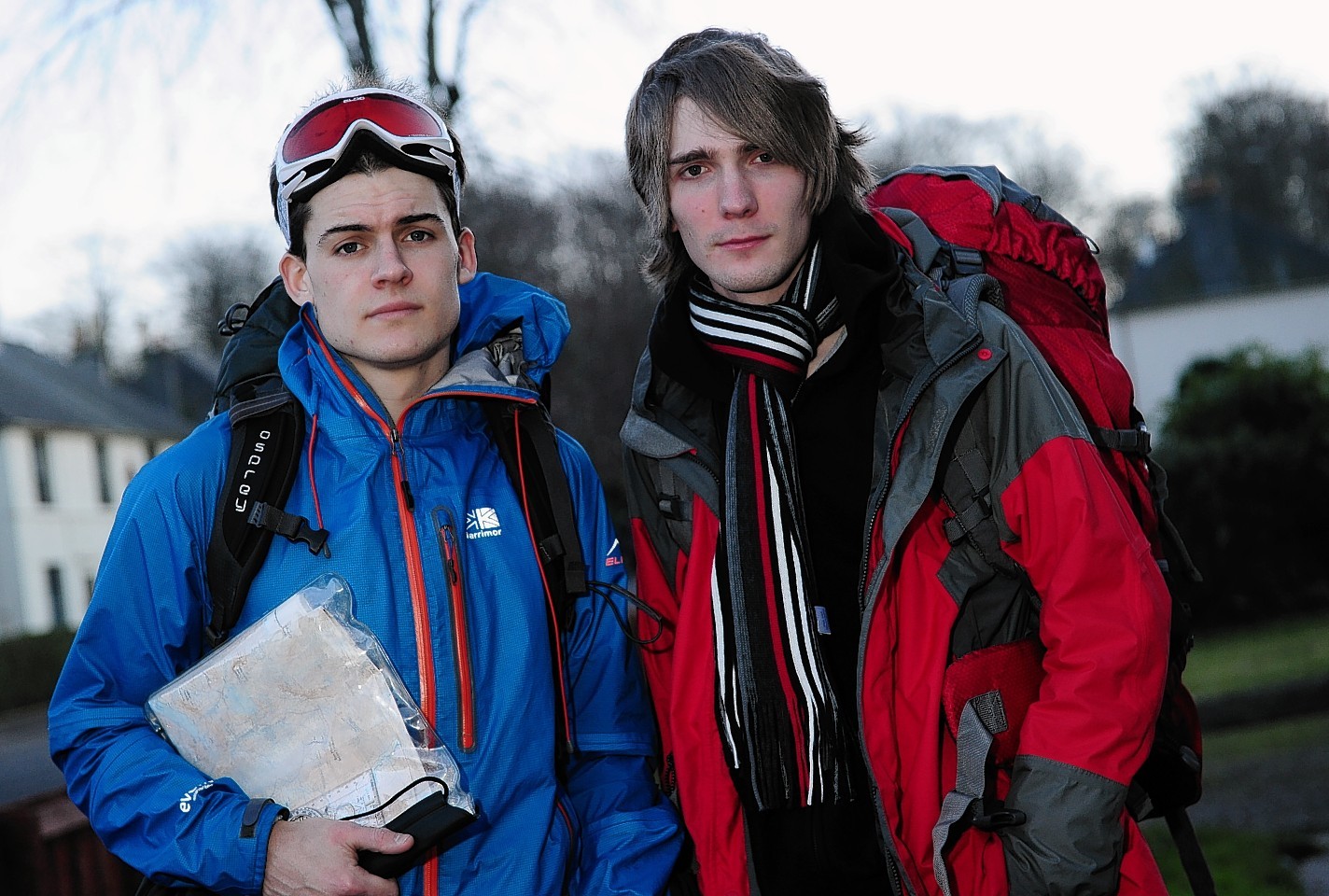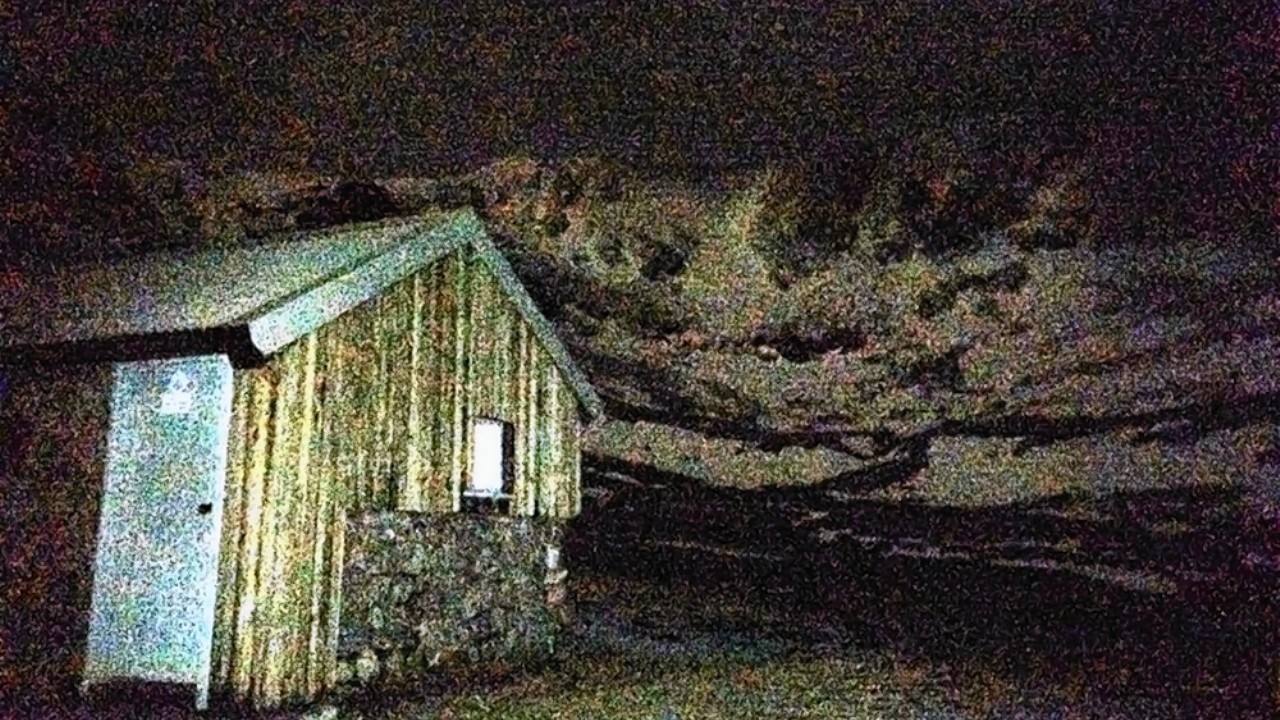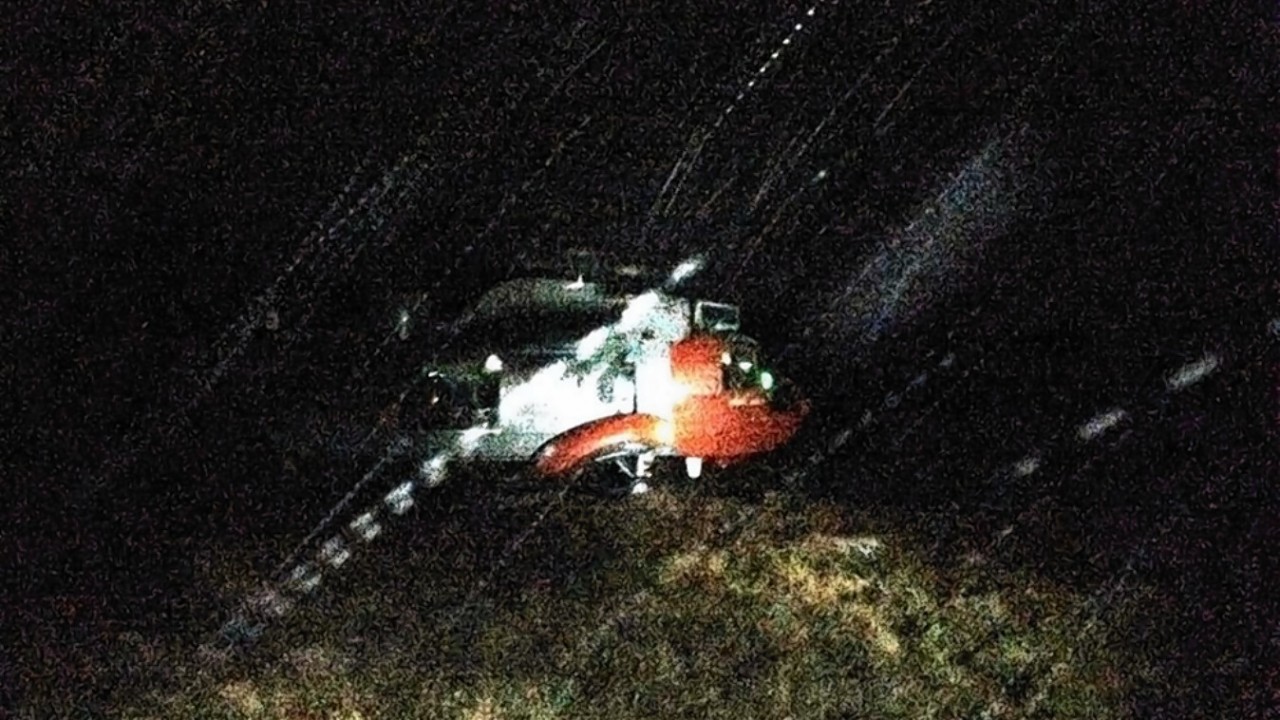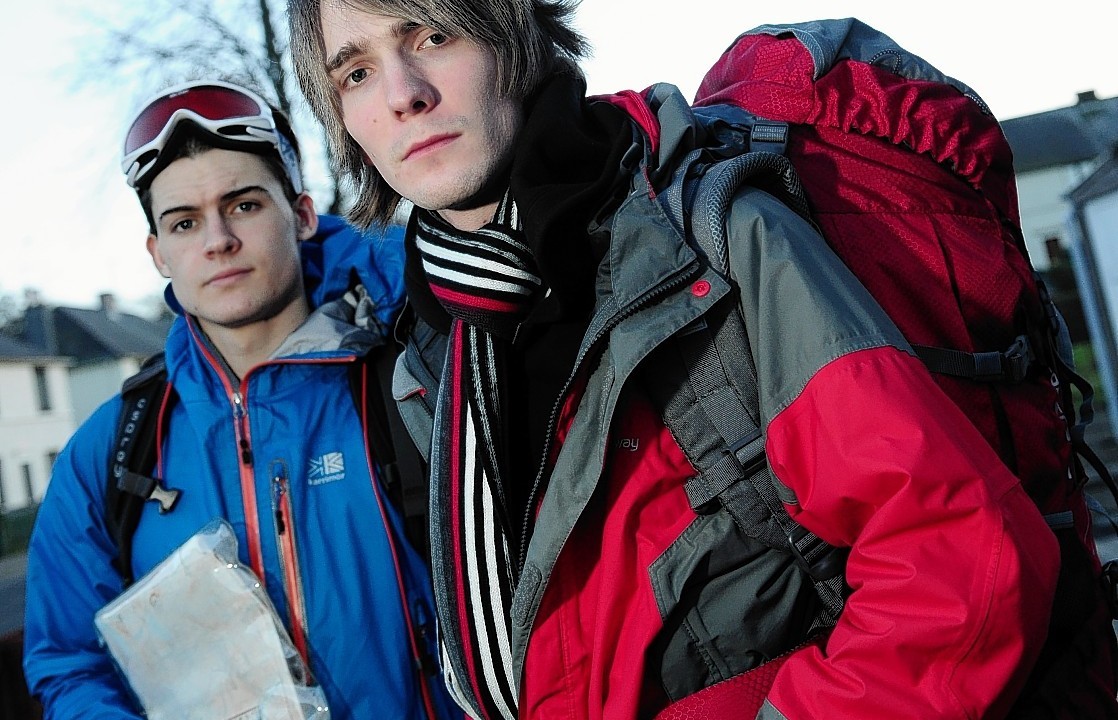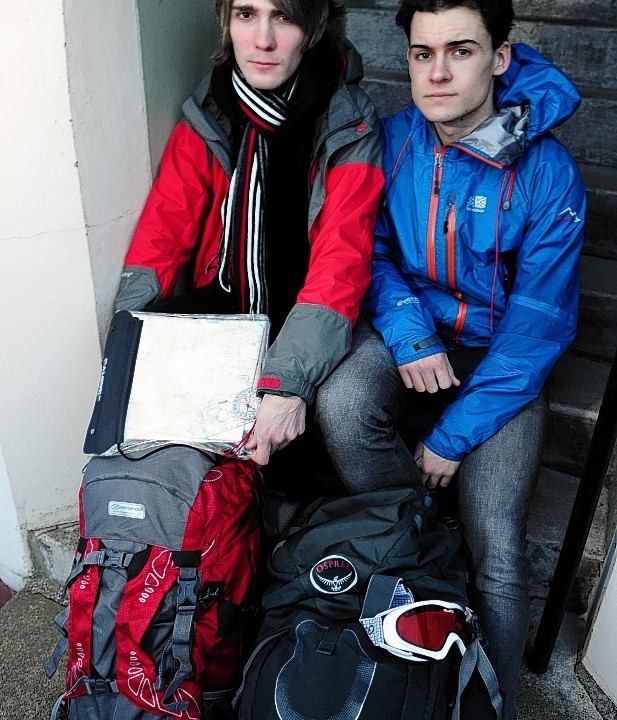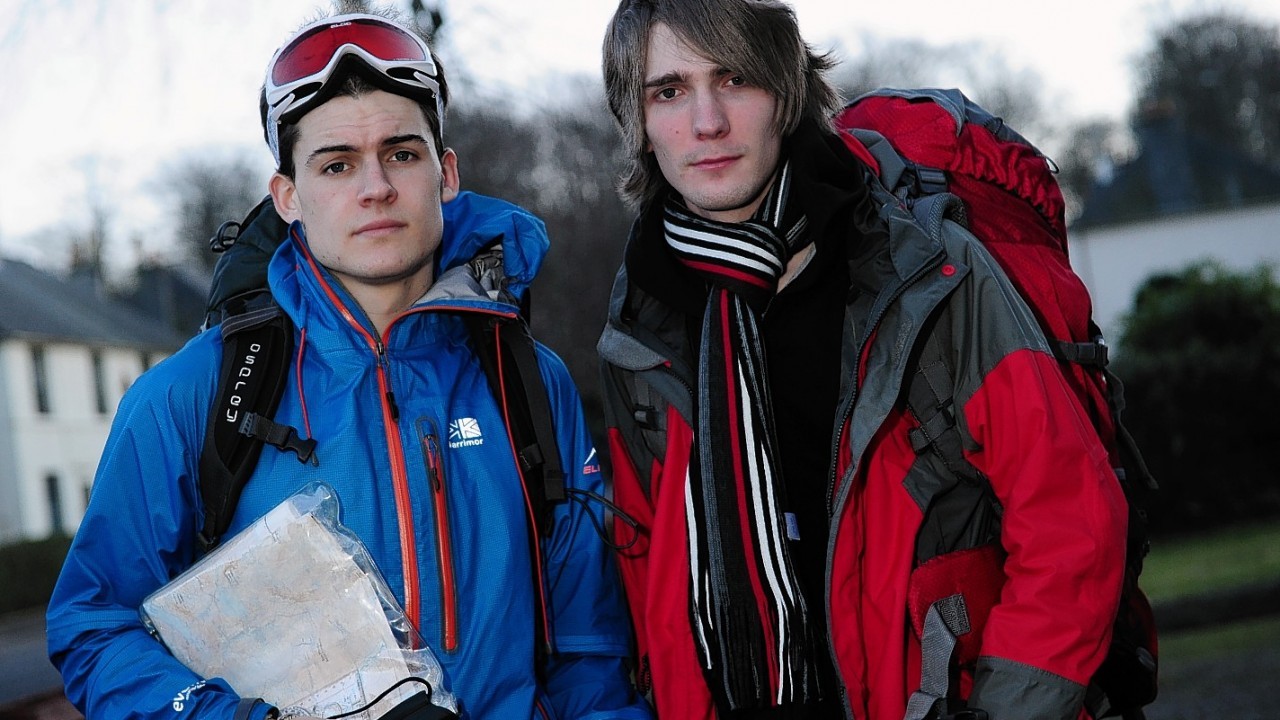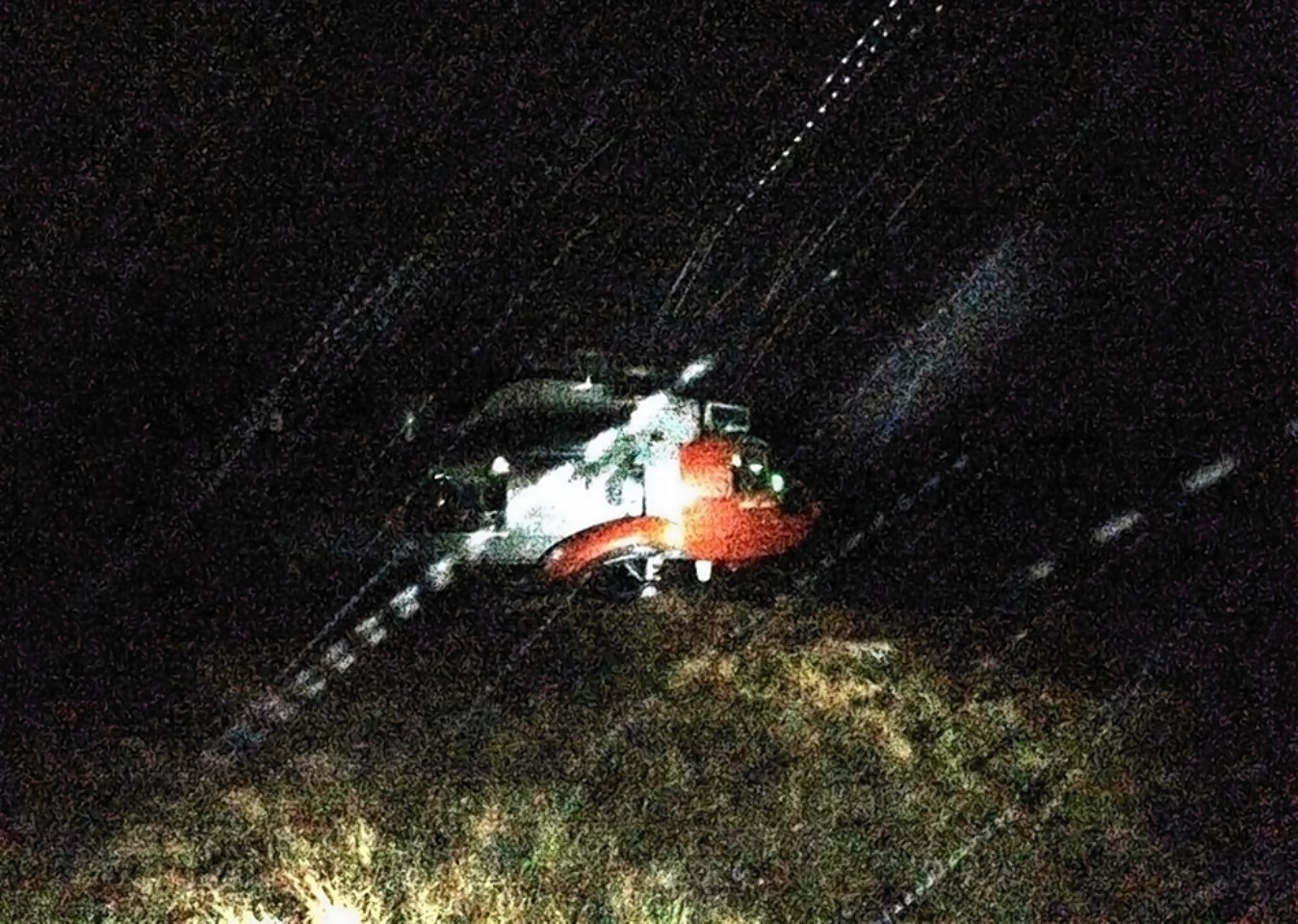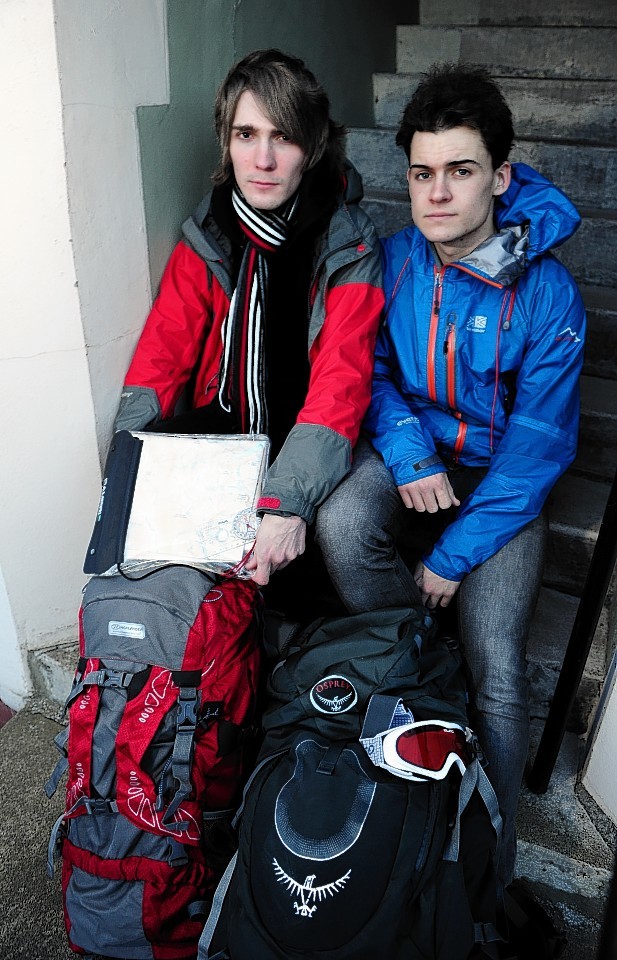Two walkers facing death in the Cairngorms yesterday thanked Royal Navy pilots who displayed “brilliant” flying skill to help rescue them in horrendous conditions.
Alex Kirby and Luke Copeland got into difficulty on Ben Macdui, Scotland’s second highest mountain, in blizzards, lightning and “unrelenting winds” of more than 100mph on Wednesday.
They sent a message to a friend asking him to call for help before spending several hours huddled in a tent waiting to be found.
Members of Cairngorms Mountain Rescue Team who walked into the hills and found the men said that their chances of surviving the night were slim given the “atrocious” conditions.
At Mr Copeland’s home in Aberdeen yesterday, the two men described their ordeal.
They reached Ben Macdui on Tuesday, before setting out for Loch Etchachan, where they camped overnight.
Wind speeds increased in the early hours of Wednesday and the men started to head back to the ski area at daylight.
However conditions deteriorated throughout the day, slowing their progress.
Mr Copeland, 25, an air traffic controller, said: “The strong winds were unrelenting and visibility was poor.”
They got lost on the descent from Ben Macdui and in desperation alerted a friend to their predicament, asking him to give rescuers a grid reference for where they were.
The two men managed to put up their tent and used survival bags and blankets to keep warm. However it was several hours before they were found by Cairngorm team, who walked them down to a lower level to be picked up by the Royal Navy helicopter from Prestwick during a weather window.
Mr Copeland said it was a “massive relief” to be found.
Mr Kirby, a 22-year-old student from Plymouth, said: “We’d like to say a huge thank you to everyone, especially the helicopter crew.
“It was quite scary to think that we might not have made it out. I do feel quite lucky.”
And he said that he was planning to make a donation to the team when he received his student loan.
Willie Anderson, leader of Cairngorm Mountain Rescue Team, said conditions were “atrocious” and the men’s chances of survival overnight were “slim”.
He said: “It was a brilliant piece of flying. The Royal Navy crew deserve the credit. It would have taken five or six hours to walk out of there.”
The crew of the Prestwick-based helicopter were off duty yesterday and could not be reached for comment.
